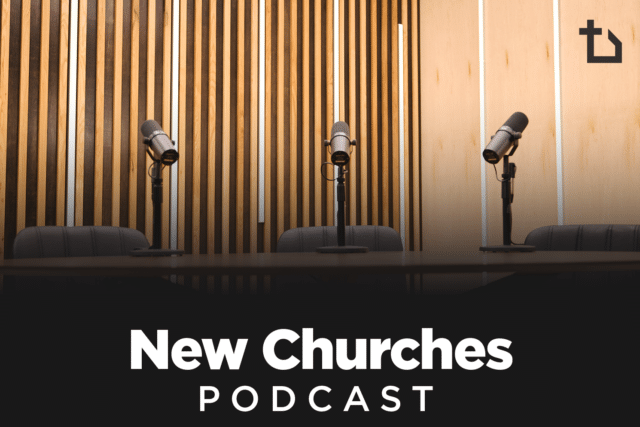Article
The Priority of Humility
Humility does not deprive us of what we could be. It provides us with all that Jesus died for us to be.

Years ago, I heard John Piper share a story at a conference I attended. He said that someone once asked him, “John, how do I learn to be humble like you?” He replied, “Who said I was humble?”
The pastoral life can easily morph into a prideful life. Something emerges when we build pastoral personas at the expense of being persons, and it’s this: we use worldly metrics for success. We overwork to assign ourselves the value and worth we’re afraid our people will never see. Eugene Peterson once said that people only see what a pastor does one day out of the week. Fair enough, but here’s my question: why are we bothered by that? What is that prickly thing poking at our hearts when the church member says, “It must be nice to only work one day a week?” Why do we respond by doing everything we can to make sure our largely unseen work becomes more seen?
Embrace Anonymity
It would be the equivalent of a farmer who planted a seed in the soil, but then dug it up the very next day so that everyone could see that he planted something. Isn’t it strange that our fear of looking incapable and unproductive is what propels us into a lifestyle of overwork that leads to an overestimation of our abilities? I hope this next sentence is a great help to you—you are not working to satisfy your congregation’s definition of productivity. You are pointing your people to the person and work of Jesus Christ, which is ironically not attained based on their productivity at all. The pastor’s work is meant to look more like a farmer than a factory worker.
“See how the farmer waits for the precious fruit of the earth and is patient with it until it receives the early and the late rains” (James 5:7).
Let me frame it this way: have you ever thought that the more important question than “Am I being productive with my hands?” might be “Am I being productive with my heart?” To be someone who waits for the early and late rains of God to produce what only he can produce. But–when are we supposed to get some actual work done, Ronnie? When are we supposed to get some real ministry accomplished? I wonder if we need to rethink how we define the words actual and real? James is not suggesting slothfulness as a virtue. James says “Be doers of the word” (1:22-25). Doing is essential, but doing in the absence of being is how I become a pastor who finds his value and worth through the production of his hands alone.
The story of Mary and Martha in Luke 10 helps us here.
Embrace the Priority
Let’s look at Mary, who provides our souls with sage insight. Jesus offers her something more nourishing to her soul than the food Martha is frantically trying to prepare. Mary receives a meal from Jesus rather than serving a meal to Jesus. Does it mean that Mary would never be obligated to serve another meal again? Of course not. It means that Mary got the order right. Before she works with her hands, she humbles her heart at the feet of Jesus. So much of our doing happens in the absence of being. Being with Jesus, being his brother (or sister), being in his presence, being in a place that shifts our gaze to him.
“My heart says this about you: ‘Seek his face.’ Lord, I will seek your face” (Psalm 27:8).
“I eagerly seek you. I thirst for you; my body faints for you in a land that is dry, desolate, and without water” (Psalm 63:1).
Mary knew what her soul needed. That’s what humility does when it becomes the ripened fruit of our humanity. It surfaces our need for God’s presence and prepares a heart to receive the early and late rains of his grace. It grounds us in our need for nearness to God.
Now let’s look at Martha. She chose the work of her hands over the work of her heart. Sitting with Jesus was less important in the moment than serving Jesus. Now, you might ask if this lacks a bit of nuance. After all, Martha was trying to show hospitality to Jesus in a very hospitable culture, right? And yet–Jesus rewards Mary’s lack of hospitality. It’s important to note that nowhere does it say that Mary was worried if Jesus thought she was being lazy! Humility is the realization that God’s economy comes with a completely different set of bottom lines than our economy does.
Luke shows us that we need to imitate Mary, not to escape the work of Martha, but so that we can do the work Martha does with humble and unhurried hearts. Remember, Jesus is more practical than we will ever be! He knows the work that needs to be done with our hands, but he wants our hearts to become renewed first and foremost. We need to get the order right. Otherwise, we will look in the mirror and begin to see a shell instead of a shepherd.
Humility is our Clarion Call
- It slows us down so we can receive God’s good instruction
- It keeps our hearts in tune with the humble heart of Christ
- It generates greater self-awareness
- It conforms us to Jesus, the most human and humble of all humans.
Humility does not deprive us of what we could be. It provides us with all that Jesus died for us to be.
And because of that, it remains one of our greatest priorities.




